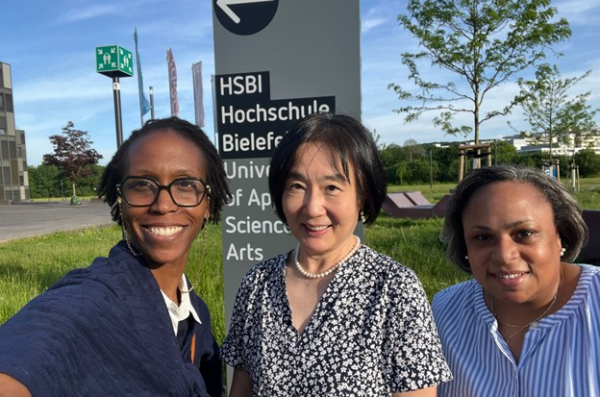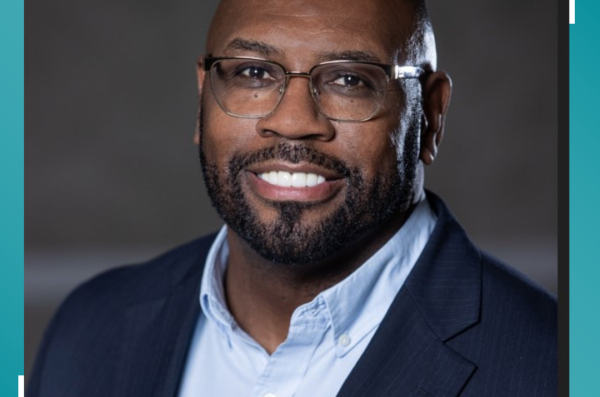Connect with us
Cultivating public health leadership
The need for public health leaders has never been greater. Profound health disparities persist across the globe due to continued and worsening health inequities. These health inequities result from long-standing historical and structural racism, colonialism, and other forms of economic and social injustices. Short term technical solutions achieved through expert knowledge alone is insufficient to address these wicked systemic complex challenges. While there have been many calls for reimagining public health’s role to address these challenges, designing and implementing initiatives that go beyond transactional change remains elusive. Transformational leadership is needed.
Implementing transformational change for health and racial justice. The University of Illinois Chicago (UIC), School of Public Health (SPH), Doctor of Public Health (DrPH) in Leadership program explicitly focuses on strengthening practitioner student knowledge, skills and ability to understand and address the persistent root causes of inequity. We emphasize whole-person, anti-racist, and action learning centered pedagogical approaches through a cohort-based collective learning approach. The curriculum integrates and assures achievement of learning aligned with the Council on Education in Public Health (CEPH) and UIC DrPH program competencies grounded in antiracism, equity and transformational leadership. Our courses are delivered in a synchronous distance-based model that is supported by an ever-growing global community of student-practitioners, faculty, alumni, staff, and strategic partners committed to health and racial justice. In 3.5 years, students undertake a rigorous and well supported journey through a carefully crafted curriculum learning the process of and practicing in real time transformational leadership for health and racial justice.
About leading transformational change
The UIC DrPH program practices transformational leadership emphasizing leadership as a process of engaging diverse strengths. Complex challenges rooted in systems of unjust policies and practices require leadership that goes beyond short-term, individual solutions, and relying on persons in authority or who have the most technical expertise. The program emphasizes:
- practices of self reflection, listening and engaging inclusive voices
- strategies for community collaboration
- coalition building and organizing
- development of a vision toward a shared understanding of challenges
- co-creation toward a generative future designed to shift power and resources that enable liberation for all
About centering anti-racism, equity learning and impact
The UIC DrPH program emphasizes addressing equity through anti-racism in public health, encompassing a breadth of ideas, language and theories and deliberate, conscious actions by individuals and organizations to:
- build relationships and trust to create containers for dialogue
- expose structures, policies, and practices that create and sustain racial disparities in health
- confront the underlying root causes of inequities through collaborative, evidence-based action
The DrPH program’s goal for public health centers on dismantling structural racism and transforming systems to realize equity for all.
About evidence-based practice
The UIC DrPH program promotes an approach to investigation into organizational or community challenges that draws on the tenets of science but maintains a pragmatic focus on experience-based problem solving to gather real-world data, and employs systematic methods and critical thinking related to those who are directly experiencing the problem.
About peer networking
At the core of the UIC DrPH program is its students, alumni, faculty, and staff. The program’s students share their experiences and expertise with one another through the course of their time in the program and are critical components to one another’s leadership journeys. Through its focus on building communities of practice among its students, and through formal mentoring and coaching opportunities, the DrPH program fosters peer networking for students’ personal and professional growth.
André Gilmore Stanley DrPH Scholarship in Equity
This scholarship was launched in 2021 to honor the memory of André Gilmore Stanley, a proud member of SPH’s 2016 DrPH cohort and a policy analyst for the FDA’s Center for Tobacco Products. The scholarship focuses on equity and anti-racism, one of André’s focal points in public health. Meet our scholarship recipient below, and read more about the scholarship here.
About Stacey Cunningham Penny

Executive Project Director, National Network of Perinatal Quality Collaboratives
- Senior Project Director, National Institute for Children’s Health Quality
- Project Director, National Network for Perinatal Quality Collaboratives
- Project Director, Alliance for Innovation on Maternal Health, Quality Improvement Community of Learning
Dissertation Research
My dissertation research employed a qualitative, multiple-methods, case study approach to investigate the presence of systemic and structural racism and bias within hospital-based care and their contribution to inequities in severe maternal morbidity among Black women. Additionally, I explored hospital organizational factors such as the quality of care, hospital culture, leadership buy-in and support, and communication among providers and staff in Illinois hospitals. This combination of factors and their impact on maternal health outcomes has not been extensively studied. Therefore, my research aims to fill a gap in public health knowledge and provide insights for healthcare leaders on the crucial role of hospital infrastructure and organizational culture in pregnancy outcomes, patient safety, and maternal care delivery. I conducted semi-structured interviews with obstetric and labor and delivery staff in Illinois birthing facilities to provide data that would answer my research questions:
- How do organizational factors influence the delivery of care within Illinois hospitals?
- How do hospital labor and delivery practices impact patient safety?
DrPH faculty, student, and alumni impact on public health
Alumna Amy Warnock Recognized

In May of 2024, Amy Warnock was named as one of the American Journal of Health Promotion’s “Twenty under Forty: Some of Health Promotion’s Finest.” Read more here.
Alumna Col. Gwen Foster Promoted

Col. Gwen Foster (2019 cohort) was promoted to Brigadier General in the U.S. Air Force Medical Service Nursing Corps in June of 2024. Watch her ceremony.
Student First-Authored Winning Article

DrPH Student Glen Schneider and DrPH faculty member Yuka Asada are winners of the 2024 UIC SPH Research Article Award in the “student first-authored” category. Read the article in the Journal of Public Health Management and Practice here.
Community Collaboration Winning Article

DrPH Student Tooka Zokaie and DrPH faculty member Karen Peters are winners of the 2024 UIC SPH Research Article Award in the “community collaboration” category. Read the article in the Journal of School Health here.
Faculty Abroad

DrPH faculty Drs. Fanta Waterman and Michele McCay traveled to Bielefeld Germany as part of the UIC SPH delegation to the 2024 International Week held at the Hochschule Bielefeld University of Applied Science and Art (HSBI). Learn more about their experience here.
DrPH Student Named NACCHO Board President-Elect

NACCHO welcomes Damōn Chaplin as Board President-Elect. Damōn Chaplin, MBA is a DrPH student and Commissioner for the City of Minneapolis Department of Health. Read more here.